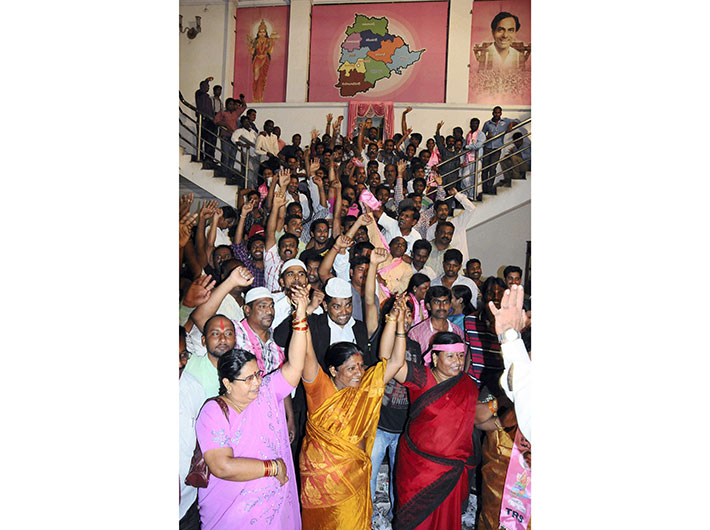The movement has waxed and waned in direct response to the government’s ability to address people’s aspirations
History has an uncanny ability to haunt societies that fail to reconcile with their past. The Telangana movement in Andhra Pradesh is one such ghost which refuses to die down. In the annals of communist history, the Telangana movement is seen as a glorious period of peasant uprising against the extortionist regime of the Nizam in Hyderabad. Even in the post-independence period, romantic revolutionaries had dreamt it to be a cradle of revolution till Indian forces marched into Hyderabad and forced the secessionist Nizam to surrender in 1948.
Even after the merger with the union, Hyderabad continued to be a distinct geographical entity with its background of social struggle and separate cultural moorings. There was a craving among the people of the Telangana region, which includes Hyderabad, to be a stakeholder in the process of development. That is why legislators of the Hyderabad assembly opted to merge with the Andhra Pradesh carved out of the Madras presidency in early 1950s. The cardinal principle under which the merger was effected could only have been better governance and equitable growth for the Telangana region which had lagged far behind its neighbours in the state. Promises were duly made for focusing on growth in this region but these promises were forgotten in due course of time.
The Telangana movement has, therefore, waxed and waned in direct response to the government’s ability to deal with the people’s aspirations. In 1970s, Indira Gandhi devised a six-point effective formula of governance to address people’s aspirations. That the formula was very effective became evident in the 1977 Lok Sabha elections when Indira Gandhi won 41 out of 42 seats from the state. This was the post-emergency phase of politics when Mrs Gandhi faced all-round rout in the northern states. In effect, the sentiments for creation of a separate state were subsumed by a sympathy wave for the unified Andhra Pradesh.
That the Telugu sub-nationalism is stronger than the Telangana sentiment became evident once again when NT Rama Rao launched his Telugu Desam party. Even his son-in-law N Chandrababu Naidu deftly handled aspirations of people from across the state till 2004. He effectively managed to contain the Telangana movement and persuaded even the BJP to abandon its agenda of smaller states. But the Congress promised to revive the movement by promising to create a new State Reorganisation Commission (SRC) and carve out a separate Telangana state.
Just as in the past, though, the issue was once again forgotten when Y Rajasekhara Reddy consolidated his position as chief minister and effectively put a lid on the movement. That YSR’s political management was far superior to the Telangana protagonists in strategy came to the fore when the Telangana Rashtriya Samiti (TRS) lost substantial ground to the Congress even in 2009 assembly and Lok Sabha elections. The movement resurrected once again after YSR’s tragic demise. With the centre lacking a political coherence and the Andhra Pradesh Congress leadership facing an internal revolt, the situation seems to be ripe to stoke the flames of Telangana.
That the centre is ambivalent on the issue is amply reflected in the recommendations of the Srikrishna committee constituted by the union home ministry. Though the committee gave its voluminous report detailing the history of the movement, its recommendations do not support the theory of a separate Telangana state as the cure for the prevailing ills in the region. Even as the centre continues to prevaricate, the situation in Telangana is becoming increasingly volatile. Once again, efforts are on to shift the spotlight from genuine aspirations of people to trivia.
The government’s major worry is that the creation of a separate Telangana state will open a Pandora’s box and expose the fault lines of misgovernance exacerbated over decades. Like Telangana, there are several other regional pockets in the country which are craving for attention. Bundelkhand, Vidarbha and Mahakaushal are also considered pockets of bad governance, illiteracy and acute poverty. Why do these regions and their people remain backwaters after over six decades of sustained planned growth? Blunt questions of this nature cannot be tackled by a commission with limited brief. The best recourse would be to set up a second SRC which can re-draw the boundaries of the state with a view to ensuring each state as an effective unit of administration and governance. Until then, ghosts of the past are sure to haunt successive governments.



